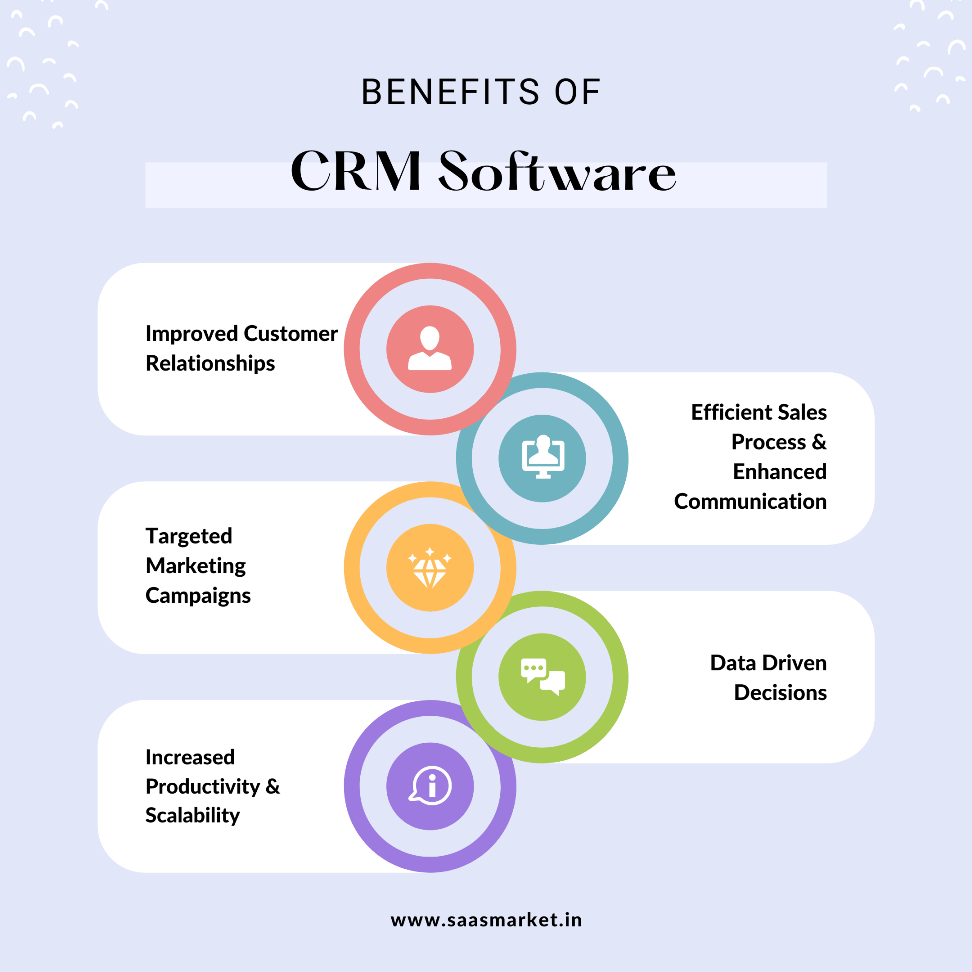Customer Relationship Management – CRM software plays a pivotal role in modern business strategies, enabling organizations to effectively manage interactions with customers, streamline processes, and drive growth.
In this article we will dive deep into the significance of CRM software, its key features, benefits, implementation considerations, and how it enhances the effectiveness of customer relationship management.
1. Understanding CRM Software
CRM software is a technology solution designed to help businesses manage and analyze customer interactions, streamline sales, marketing, and customer service processes, and ultimately enhance customer relationships.
It acts as a centralized hub for storing, organizing, and accessing customer data, enabling informed decision-making and personalized engagement.
2. Key Features of CRM Software
Contact Management
- Store and organize customer information, communication history, preferences, and interactions in a single database.
Sales Automation
- Manage leads, opportunities, and sales pipelines, automate follow-ups, and track deal progress.
Marketing Automation
- Plan, execute, and analyze marketing campaigns, segment customers, and track campaign performance.
Customer Support
- Track customer inquiries, assign tickets, provide timely support, and monitor customer satisfaction.
Analytics and Reporting
- Generate insights from customer data, track key performance indicators (KPIs), and create custom reports.
Integration Capabilities
- Integrate with other business systems like email, marketing tools, e-commerce platforms, and more.
- Mobile Access: Access CRM data and functionalities on mobile devices, ensuring productivity on the go as a part of CRM Solutions.
3. Benefits of CRM Software
Improved Customer Relationships
- CRM tool enables personalized interactions, leading to enhanced customer satisfaction and loyalty as CRM Solutions.
Enhanced Communication
- Centralized data ensures that all team members have access to consistent and up-to-date customer information, promoting better communication.
Efficient Sales Processes
- CRM – Customer Relationship Management streamlines lead management, automates tasks, and provides real-time visibility into sales activities, leading to faster deal closures with CRM Integration.
Targeted Marketing Campaigns
- Segment customer data to create highly targeted and effective marketing campaigns, increasing conversion rates.
Data-Driven Decisions
- Analyze customer data and generate insights to make informed business decisions and strategies.
Increased Productivity
- Automation of repetitive tasks frees up time for teams to focus on value-added activities.
Scalability
- CRM software grows with your business, accommodating increased data and user requirements
4. Implementation Considerations
Define Goals
- Clearly define the objectives you want to achieve with CRM software, such as improving sales, enhancing customer service, or optimizing marketing efforts.
Choose the Right Solution
- Select a CRM software that aligns with your business size, industry, and specific requirements.
Data Migration
- Plan and execute the migration of existing customer data into the CRM system accurately.
User Training
- Provide comprehensive training to ensure effective utilization of the CRM software by your team.
Customization
- Customize the CRM to match your business processes and workflows.
CRM Integration
- Ensure the CRM software can integrate with other essential tools used in your organization.
5. Real-world Examples
Salesforce CRM Tool
- One of the most popular CRM solutions, Salesforce offers a wide range of features for sales, marketing, and customer service.
HubSpot CRM
- HubSpot provides a user-friendly CRM with integrated marketing and sales tools.
Microsoft Dynamics 365
- A comprehensive CRM suite that integrates with Microsoft Office and other applications.
Conclusion
CRM software is a powerful tool that revolutionizes customer relationship management by centralizing data, automating processes, and enhancing communication.
By effectively implementing CRM software, businesses can elevate customer interactions, drive growth, and achieve a competitive edge in today’s dynamic marketplace.
The key to success lies in understanding your specific business needs, selecting the right solution, and leveraging the features to optimize customer relationship management and achieve long-term success.
Want Solutions In Terms Of Digital Presence Creation, Brand Awareness, Lead Generation, Lead Retension & Want Increase ROI ?
